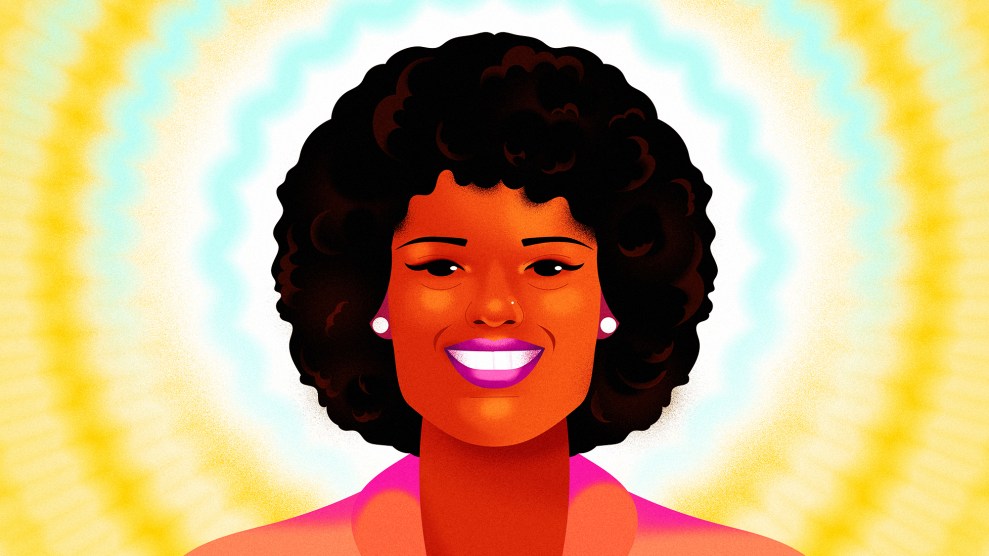More than five years ago, the MeToo movement exploded and our culture shifted. But what actually changed? This project seeks to reexamine the era by asking how it will alter the lives of the next generation.
In 2012, when Evelyn Yang was pregnant with her first child, she was sexually assaulted by her OB-GYN, Dr. Robert Hadden, at New York-Presbyterian/Columbia University Irving Medical Center. It was five years before the MeToo movement. Without the support of other survivors, she suffered silently, trying and failing to bury the experience.
Since MeToo, Yang has shared her story publicly and heard from hundreds of other survivors who were assaulted by Dr. Hadden during his decades-long practice. But the statute of limitations meant that the vast majority of these survivors were left without legal recourse. Using her platform as a public figure—her husband, Andrew Yang, ran unsuccessfully for president and New York City mayor—she sought to change such restrictions. Last May, to ensure more survivors could seek justice, Yang helped pass the Adult Survivors Act, a one-year window that allowed survivors of sexual abuse in New York to sue their abusers regardless of when the abuse occurred. Most recently, E. Jean Carroll used the new law to sue former President Donald Trump for battery and defamation. The window closes in November 2023. “I want to be a vehicle of notification,” Yang tells me over the phone. “Every time I give an interview, more women come forward.”
CUIMC told Mother Jones in a statement it was “profoundly sorry for the pain that Robert Hadden’s patients suffered.” The hospital says it has “reached agreements with more than 225 of Hadden’s former patients” and remains “open to resolving any outstanding claims.”
I remember when my baby was a bit larger than a grapefruit.
It was early in the summer of 2012. I was 30, in my third trimester with my first child, and a few weeks before I was sexually assaulted by my gynecologist, Dr. Robert A. Hadden.
There was this assumption that Hadden, as my doctor, must know best. That there must be a good reason why I was having all these exams and why some of them were really uncomfortable. During my final appointment, right before I left his office, he made up an excuse that I might need a C-Section. He proceeded to undress and assault me.
I compartmentalized the assault and became hyper-focused on finding another doctor to deliver my baby whose due date was two months away. I was isolated, ashamed, and silent.
It was only later that I found out I was dealing with a skilled sexual predator who had been grooming and abusing me for months. And that, for over 20 years, he had preyed on hundreds of women who were having their first experiences with him—for some, their first gynecological visits and for others, their first pregnancies. He assaulted one minor who he had delivered himself. He took advantage of the fact that women would come into his office unsuspecting and vulnerable.
We spend so much time thinking and talking about the pregnancy stages. (Every pamphlet is about how big your baby is.) We don’t spend that much time going into what the woman should be expecting from the doctor, or what the visits are supposed to look like—if it’s appropriate for your doctor to do this or inappropriate for your doctor to do that. There was no playbook for that.
Hadden was a well-regarded doctor at Columbia University who had been practicing for years. And this was in 2012, five years before the MeToo movement gained momentum. There wasn’t a public community of survivors to draw support from. But the assault invaded my thoughts regularly.
I didn’t tell anyone until I saw a headline that June. A woman had filed a police report against Hadden, and he had been arrested. It was like my whole world shifted. It’s hard to describe the feeling of realizing for the first time that I wasn’t alone. I finally told my husband.
In June 2013, I joined two other plaintiffs, anonymously, in filing a report in the Manhattan Supreme Court with then–District Attorney Cyrus R. Vance Jr. Half a dozen women testified in front of a grand jury, and Hadden was indicted on six felony counts of sexual abuse and criminal sexual acts. A few years passed before we learned, in 2016, that the district attorney’s office had struck a plea deal with Hadden. His medical license was revoked, but he avoided jail time.
Hadden was represented by a powerful attorney, Isabelle Kirshner, who had a personal relationship with the DA. She basically made the case go away. It was absolutely an illustration of how power and influence trump justice. In many cases, at the expense of the survivors.
The DA’s office positioned it as a win. I would characterize it as more of an early retirement. Hadden was going to have to stop practicing medicine, but that was it. It was really hard to accept. It had been considered resolved, but not from the survivors’ perspective.
When I think about why I chose to come forward, it goes back to the fall of 2017 when my husband, Andrew Yang, announced his 2020 presidential campaign. I suddenly found myself in public life—something I’d never imagined for myself. For most of my adult life, I even shunned social media. Seeing Andrew morph into a famous political figure was unexpected, to say the least. Sometimes, I say that I’m an accidental advocate
If you had asked me in 2012 or 2015, Would you ever tell people publicly that you were sexually assaulted by your doctor? I thought I would never. I didn’t even tell my own family.
On the trail, there was one message in particular that triggered me to start thinking about speaking out. A woman reached out to me about her own experience, as an entrepreneur, reporting sexual assault by her startup’s main investor. She basically risked everything. I started thinking about how I had my own MeToo story, like so many, and how I’d been carrying around this burden of being assaulted. Suddenly, I was in this extraordinary space in my life where I had a platform. I couldn’t shake that feeling that I needed to share.
I decided to tell my story in a CNN interview on January 16, 2020. I remember the days leading up to the interview very, very well. I mulled over it. I was terrified. I tried to cancel it, reschedule it. I was mostly afraid that people would mock me, that they wouldn’t believe me, or that they’d maybe weaponize it against my family. I kind of felt like I was deciding to set myself on fire—or walk into a minefield. I had to decide to make myself so vulnerable, hoping that it would do some good. I had lost 10 pounds that week. None of my clothes fit and I slept very little.
Thankfully, the response was largely positive. But there were dark places at the fringe. Rape culture is real. There were comments relating to my ethnicity. Like, “She wanted his egg roll.” Those comments just illustrate to me how much work we have to do in terms of supporting women of color. It’s difficult enough as it is to come forward about sexual assault. But being Asian, culturally, adds another layer of complexity. There’s a reason why I didn’t tell my family about this.
After I spoke out, hundreds of women came forward. In September 2020, Hadden was federally charged with inducing patients to travel across state lines to sexually abuse them. This January, many of those women sat in front of me in the federal courtroom as we heard the final verdict of those charges.
It was my first time in a room with him after all these years. They came back with their verdict very quickly: Guilty on all counts. Our understanding from the FBI agents and even the prosecutors was that it was going to take some time, but it was very decisive. It was a multi-week trial and they deliberated for something like less than two hours, which was surprising to everyone. It was incredibly affirming to be there with the other survivors in the room. When they came into the room with the verdict, you could hear this collective, guttural cry. That was the accumulation of years and years of struggle and anticipation.
To date, over 300 women have come forward, both patients and nurses, with cases as far back as the ’90s. But because of the statute of limitations, which is largely arbitrary and varies from state to state, the vast majority of these women were left with no recourse. We all know how long it takes to out sexual predators, especially the powerful ones in influential positions. When all these women spoke up saying he did this to me too—I felt like I had opened this door…but then it was like the door slammed in their face. Oh, too bad, you’re too late.
So, I got involved with Safe Horizon, a victim services organization, and helped pass a bill last May called the Adult Survivors Act, which allows for a one-year “look back window” so that any survivor of Hadden, or any survivor of sexual assault in the state of New York, can file a claim in court no matter when the abuse happened. That window ends in November 2023. So, it is absolutely time-sensitive that we get this word out now.
To this day, I’m still waiting for Columbia University to notify former patients that a now twice-convicted sex offender worked at Columbia for 20-plus years. They’ve been saying that that’s not their responsibility, but how does that make sense?
We now know that Hadden was abusing women without them even being fully aware. He would make up false conditions and subject women to extraneous visits and invasive, painful exams. If they left the practice at some point they would never know, definitively, that they were being abused. Every former patient of his deserves to be able to examine her own experience and medical records to see if she was victimized.
The other part of it that makes me lose sleep is thinking of anyone out there who, like me, buried this experience thinking that they were completely alone. Knowing they were assaulted, but thinking, “Oh, this must have just been something I did to invite his abuse, so I’m just going to bury it and try to forget about it.”
If you’re not paying attention to the news, you would still think that you were alone. Everyone deserves to be notified. Everyone deserves a chance at some kind of justice closure.













